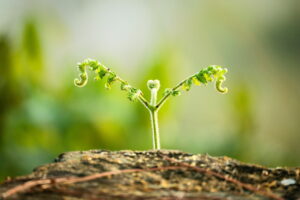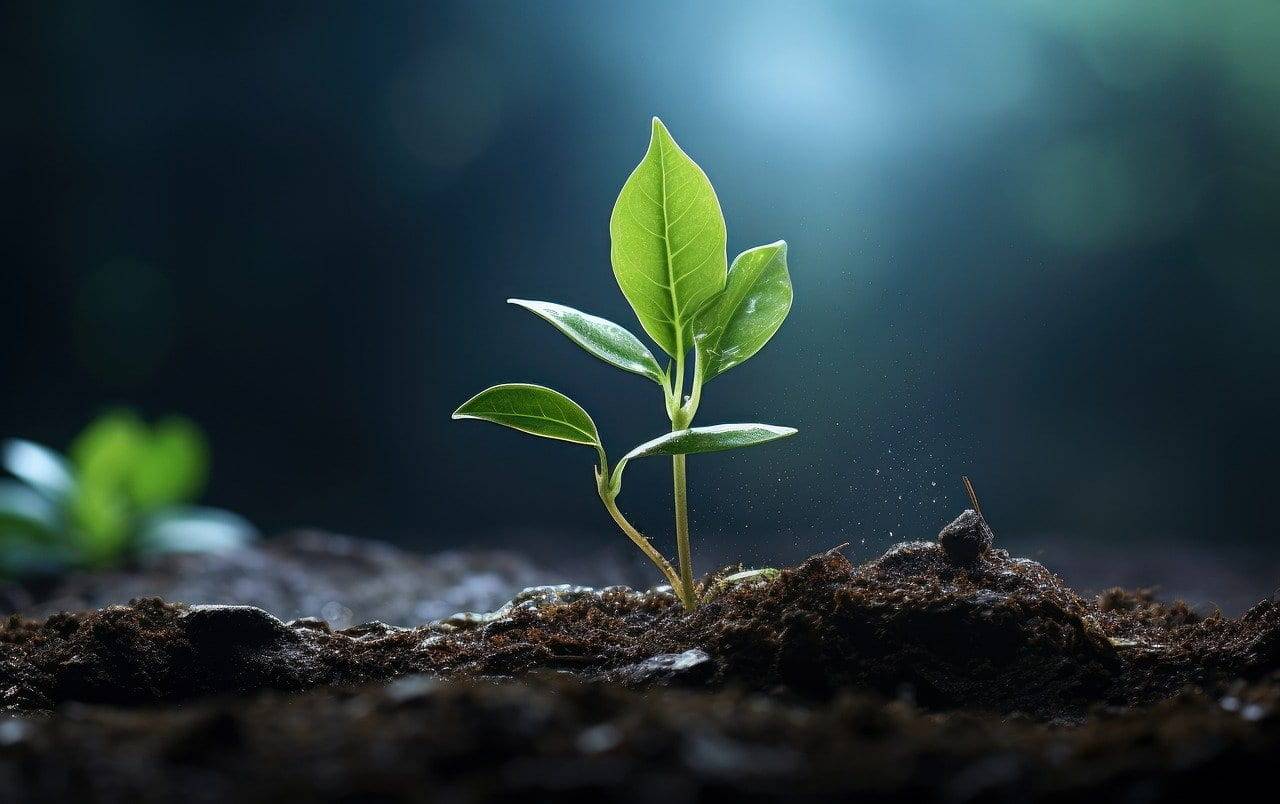Sprouts are an awful addition to any diet because they’re easy to grow and full of nutrients. Raising them at home is a fun and affordable way to add fresh, healthy plants to your reflections. In this primer, we’ll show you the whole process of growing sprouts, from picking the correct seeds to gathering them.
Choosing the Right Seeds for Growing Sprouts
Picking the right seeds is veritably essential when growing sprouts. Look for organic, undressed seeds specifically labeled for sprouting. Popular options include alfalfa, broccoli, and mung sap, all of which are nutrient-thick.
Preparing Your Accoutrements for Growing Sprouts
You don’t need important to start growing sprouts. All you bear is a clean jar, water, and the seeds you want to sow. Make sure the jar contains a mesh lid to help with draining the water fluently. Having your accouterments ready ensures a smooth sprouting process.
Soaking Your Seeds for Growing Sprouts
The first stage in growing sprouts is to soak the seeds. Leaving them in water overnight helps them take in moisture and start sprouting. Drain the water the coming morning and wash the seeds completely to ensure they’re clean.
Rinsing and Draining for Healthy Sprouts
After soaking, irrigating, and draining your seeds doubly a day is essential to keep them fresh. This step prevents earth growth and ensures the sprouts are clean. Shake the jar gently after each wash to remove redundant water and keep the seeds from cementing.
How to Store Growing Sprouts for Life
Once your sprouts have grown, proper storehouse is important. Store them in a dry, cool area like the refrigerator to maintain newness. Sprouts Generally stay new for about a week, but it’s stylish to eat them while they are still brickle and fresh.
Hold an eye on how your sprouts are growing.
It’s important to cover your sprouts daily to track their progress. Sprouts generally take 3 to 7 days to completely grow, depending on the type of seed. Keep your jar in a well-lit area but avoid direct sun to help overheating.
Why Growing Sprouts is salutary for Health
Sprouts are a total of vitamins, minerals, and antioxidants that assist enhance your fitness. They help ameliorate digestion, strengthen the vulnerable system, and indeed aid in weight operation. Adding sprouts to your diet is a simple way to increase your input of essential nutrients.
The Stylish Types of Sprouts to Grow at Home
There are several kinds of sprouts you can grow at home. Popular choices include
- Alfalfa sprouts mild flavor and are packed with vitamins
- Broccoli sprouts are rich in sulforaphane, an important antioxidant
- Mung bean sprouts are brickle and high in protein Each type of sow offers unique health benefits, making it easy to diversify your refections.
- How to Harvest Sprouts at the Right Time
Knowing when to gather your sprouts is crucial to getting the stylish flavor and texture. Harvest them when they reach a length of 1 to 2 elevation, generally within a week. Gently pull them out of the jar and wash them completely before use.

How to Incorporate Growing Sprouts into Reflections
After you contain sprouts, you can add them to numerous different dishes. They are awful for salads, sandwiches, wraps, and smoothies. Their brickle texture and mild flavor make them a protean component for nearly any mess.
Troubleshooting Common Issues When Growing Sprouts
Occasionally, sprouting can come with challenges like earth or slow growth. However, discard the batch incontinently, If you notice any bad smells or unusual abrasion. ensure proper air rotation and avoid over-soaking to help these problems.
Why It’s OK to Grow Sprouts at Home
Growing your sprouts is not just healthier but also better for the environment. It reduces the need for store-bought yield, minimizing packaging waste. Plus, home-grown sprouts are fresher, toothy, and more nutritional than their store-bought counterparts.
Why Organic Seeds are More for Growing Sprouts
Using organic seeds ensures you’re not consuming dangerous chemicals or fungicides. Organic seeds are safer for consumption and frequently have an advanced germination rate. Always strive for high-quality,non-GMO seeds to get stylish results.
Simple Tips to Ensure Successful Sprouting
- Use fresh water for irrigating your seeds doubly daily.
- Keep your sprouting jar in a well-voiced area.
- Avoid direct sun to help overheating and drying. These easy tips will assist make sure your sprouts grow quickly and stay healthy.
- The Contrast Between Microgreens and Sprouts
Both are full of nutrients, but sprouts are usually produced in water, while microgreens grow in soil. Sprouts are ready to gather within a many days, making them hastily to grow than microgreens, which take a bit longer.
How important Water is for Growing Sprouts?
Sprouts don’t bear important water, but proper hydration is essential. After the original soaking, insure you wash the seeds doubly daily with fresh water. redundant water should be drained to help earth or bacterial growth in the sprouting jar.
How to Make Growing Sprouts a Fun Family Activity
Growing sprouts can be a fun and educational design for the whole family. kiddies can learn about plants and healthy eating, while grown-ups enjoy the satisfaction of home-grown food. It’s a great way to bond and educate precious life chops.
Why Sprouts are a Cost-Effective Food Option
Sprouts are one of the most affordable ways to add nutrition to your diet. A small quantum of seeds can produce a large batch of sprouts, making them a cost-effective food choice. Plus, growing them at home saves you plutocrats on store-bought flora.
Can You Grow Sprouts All Year Round?
Yes, sprouts can be grown all time long, anyhow of the season. They don’t need important space, and because they grow outdoors, you can fluently control their terrain. All you need is a small area on your kitchen counter to keep your sprouting jar.
How to Avoid Mold When Growing Sprouts
To avoid earth, it’s essential to keep your sprouts duly drained and voiced. Ensure the sprouting jar is listed to allow redundant water to drain. Also, avoid overcrowding seeds, which can trap humidity and lead to earth.
How Long Do Sprouts Last After Harvesting?
Once gathered, sprouts can be stored in the refrigerator for over 7 days. To keep them fresh longer, place them in a sealed vessel with a paper kerchief to absorb redundant humidity. Use them instantly to enjoy their maximum flavor and crunch.

The Environmental Impact of Growing Your Sprouts
Growing your own sprouts reduces the carbon footmark associated with transporting and packaging store-bought flora. It also cuts down on food waste since you only grow what you need. This makes sprouting an eco-friendly way to enjoy fresh flora.
Can you produce sprouts without a sprouting jar?
Yes, you can. Just use a regular jar and cover it with a mesh strainer or material. The key is icing proper drainage and tailwind, so any system that allows redundant water to escape will work well for growing sprouts.
By following these simple ways and tips, you can successfully grow fresh, nutritional sprouts at home with ease. Sprouting is a fun, cost-effective, and healthy way to add flora to your reflections all time round.
| Key Step | Explanation |
|---|---|
| Choosing Seeds | Use organic, untreated seeds meant for sprouting, like alfalfa, broccoli, and mung beans. |
| Gathering Materials | All you need is a clean jar with a mesh lid, water, and seeds. |
| Soaking Seeds | Soak seeds overnight to absorb moisture and begin sprouting. |
| Rinsing & Draining | Rinse and drain seeds twice daily to prevent mold and ensure healthy growth. |
| Storing Sprouts | Store grown sprouts in a cool, dry place like the fridge, ideally consuming within a week. |
| Daily Monitoring | Check progress every day, placing the jar in indirect light for optimal growth. |
| Nutritional Benefits | Rich in vitamins, minerals, and antioxidants; support digestion and immunity. |
| Harvesting | Rich in vitamins, minerals, and antioxidants; supports digestion and immunity. |
Conclusion
Growing sprouts at home is an easy, affordable, and nutritional way to enhance your reflections with fresh, home-grown flora. With a few supplies and some everyday care, you can enjoy the health benefits of sprouts all year long. They grow snappily and can be used in colorful dishes, making them perfect for busy people who want to add more vitamins and minerals to their reflections. Whether you’re a neophyte or have been gardening for a while, growing sprouts is a royal and satisfying way to make your home healthier and more sustainable

FAQs
How long does it take for sprouts to grow?
Most sprouts are ready to gather in 3 to 7 days, depending on the seed type and growing conditions.
1. What seeds are good for sprouting?
Some popular seeds for sprouting are alfalfa, mung beans, broccoli, radish, and lentils
2. Can I grow sprouts without a special outfit?
Yes! You can use a regular jar with a mesh or cloth cover. The key is to ensure proper drainage and tailwind to avoid earth growth.
3. How frequently should I wash the seeds?
Wash the seeds doubly a day — formerly in the morning and formerly in the evening — to keep them clean and doused.
4. Are sprouts safe to eat?
Sprouts are generally safe if grown duly with good hygiene. Make sure to use a clean outfit and fresh water, and always store your sprouts in the refrigerator after harvesting.
